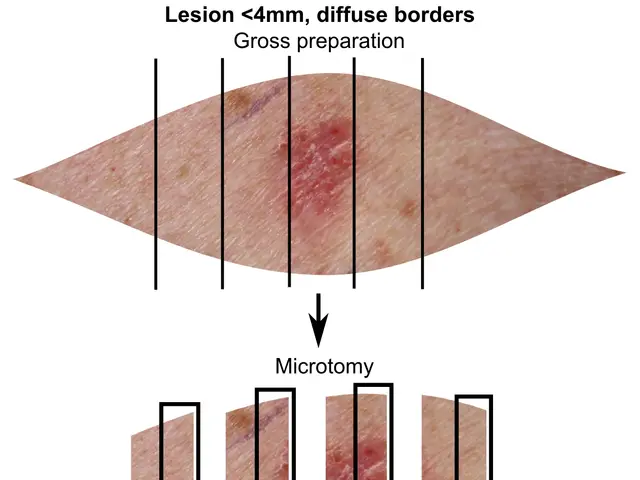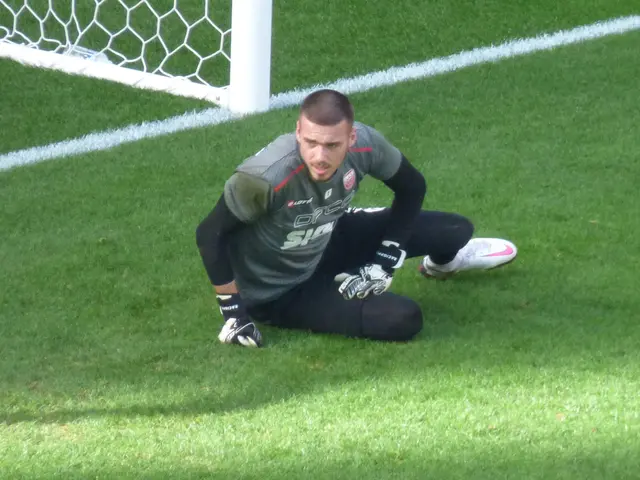Tension in Farming: Fending Off or Taking Out Seed Crows?
- *
Debate over whether to defend or to use lethal force - Contemplate Action on Seeds: Preserve or Fire Them?
Seed crows, known for their social nature and exceptional intelligence, have been recuperating in Germany, although they remain under special protection. This situation drives frustration among farmers in Rhineland-Palatinate due to these black-feathered birds' predilection for cherry, strawberry, and sugar beet and corn seedlings.
According to farmers' associations, the damage caused by crows has been escalating, resulting in substantial annual losses, particularly in Rheinhessen. Despite the possibility of obtaining permits for the shooting of animals in exceptional cases within a certain period, farmers feel these regulations are inadequate to safeguard their crops.
Farmers' Dissatisfaction and Demands
The regulation is considered too complex, too regionally limited, and not sufficient in its efficacy - that's the criticism of the Rhineland-Palatinate South and Rhineland-Nassau farmers' and winegrowers' associations. Consequently, they are demanding more, advocating for a lower protective status for the birds, allowing for more opportunities for shooting. Natural predators like birds of prey are seemingly unable to maintain a natural balance in the crow population. Measure such as noise devices, scarecrows, or flutter bands have proven ineffective according to farmers.
Thriving Bird Population
"We're not aiming to wipe out the population to the point where it no longer causes damage," explains a spokesperson for the Rhineland-Palatinate South farmers' and winegrowers' association. "Our goal is to shoot individual animals to impact the behavior of the remainder."
Should the state government uphold the protective status of seed crows, the topic of compensation must be addressed. Farmers' associations are demanding full compensation for the damage to their operations. "Something needs to change," warns an association representative.
Over a thousand breeding pairs of these birds were reported in specific regions such as Rheinhessen, Vorderpfalz, and Zweibrücken last year. Estimates suggest there were about 12,500 breeding pairs throughout Rhineland-Palatinate, with an average winter population of 16,000 animals. In urban areas, opposition from residents emerged due to the loud calls of the birds, droppings, and falling nest material.
Simplified Shooting Permit
Due to the rapid growth, Climate Protection Minister Katrin Eder (Greens) and the state bird protection authority have published a guideline for farmers and city residents. A reporting portal for crow damage has been established. The permitting process for farmers to shoot crows in exceptional cases has also been simplified within the "Allgemeinverfügung."
Despite some legal opposition from an environmental initiative, regions particularly affected by damage, like sugar beet and cherry crops, have been granted further simplified permits this year. Fifty-three applications have been received by the businesses following the previous application procedure, resulting in the shooting of three crows and fifteen starlings so far.
Environmentalists' Counteraction
The Rhineland-Palatinate state association of the German Environmental and Nature Conservation Association (BUND) is alarmed by the simplification of the culling permit process, emphasizing animal welfare. Experts from BUND advocate for alternative deterrent measures including nets, discharge firearms, and mulch sowing techniques. An evaluation of protective measures by neutral experts is required.
While Rhineland-Palatinate-specific regional policy documents were not found in the sources examined, these regulations and practices align with broader German and EU conservation law and reflect common concerns and priorities in the region[1]. Environmentalists' advocacy for non-lethal solutions and strict oversight is consistent with mainstream conservation approaches throughout Germany.
Insights:
- In Germany, wild bird species are safeguarded under federal law. Permits for the shooting of protected species like crows may be granted when non-lethal measures prove ineffective and significant agricultural damage is proven.[1]
- Farmers are often required to employ deterrents like scarecrows, acoustic devices, visual repellents, and physical barriers before lethal methods are approved.[1]
- Environmental groups in Germany, such as NABU and BUND, oppose widespread lethal control of crows, emphasizing the importance of these birds in ecosystems and advocating for effective, non-lethal deterrents. [1]
- The farming community and conservation groups may have divergent views on the best approach to managing crow populations. [1]
- The community and environmental science policies in Germany are being challenged due to the increase in damage caused by seed crows to agricultural crops, with farmers advocating for a lower protective status and more shootings.
- Science and policy-and-legislation are playing significant roles as farmers demand general news coverage about the issue and environmentalists propose alternative deterrent methods instead of simplifying shooting permit processes, emphasizing animal welfare.
- In the midst of political debate, the environment-related science and policy are crucial in determining the best course of action to maintain the balance between preserving protected species and ensuring agricultural productivity, ultimately influencing both the farming and environmental conservation landscapes.






